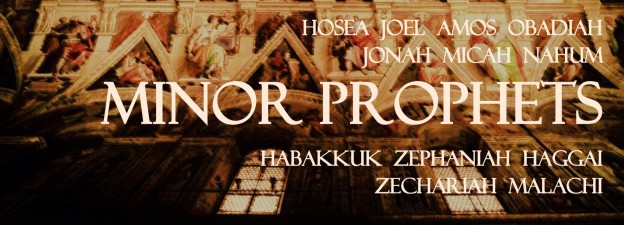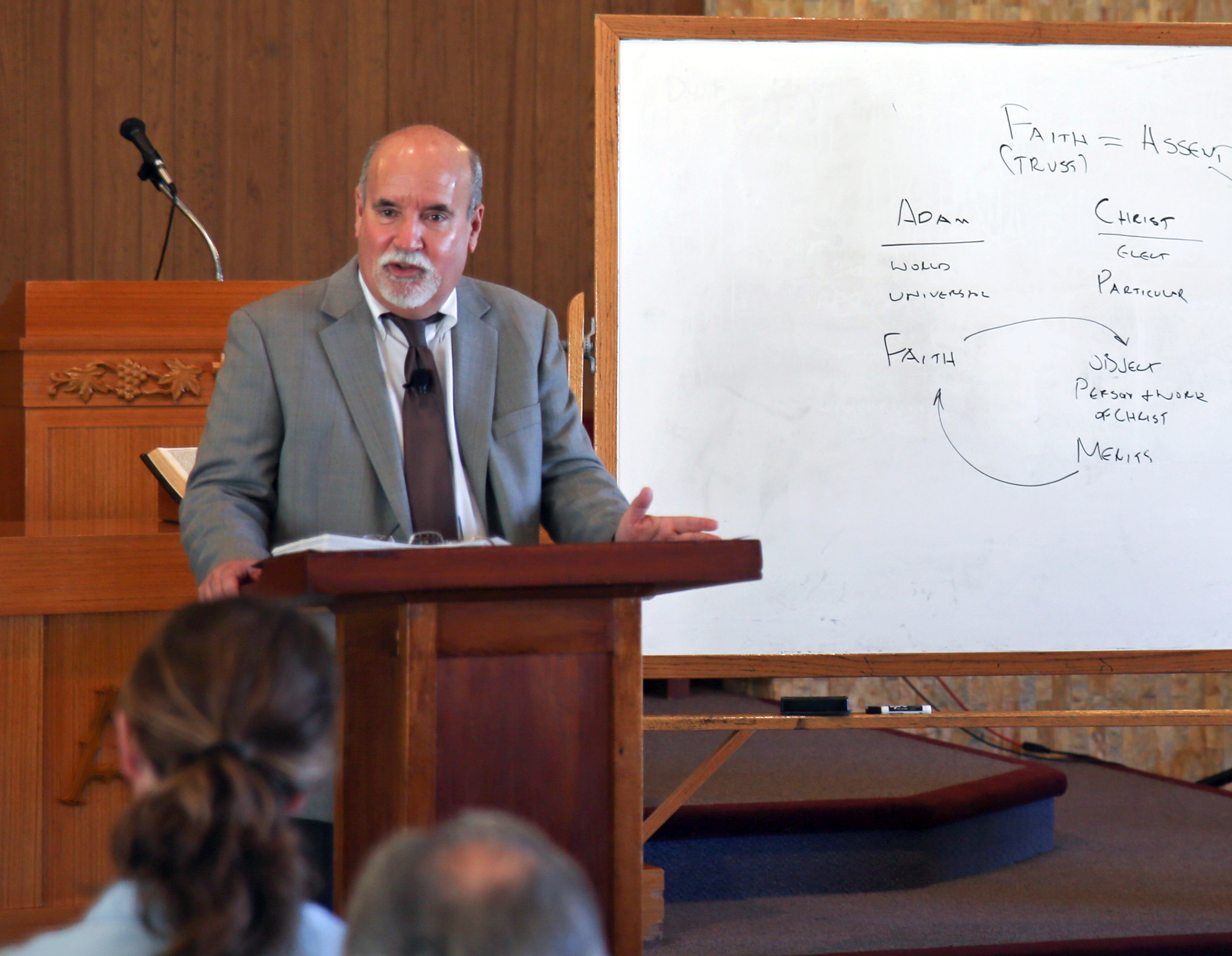"God's Church" -- 1 Timothy 3:1-13
 Sunday, May 26, 2019 at 03:05PM
Sunday, May 26, 2019 at 03:05PM 
Here's the audio from this morning's sermon on 1 Timothy 3:1-13: God's Church
Living in Light of Two Ages
____________________________
 Sunday, May 26, 2019 at 03:05PM
Sunday, May 26, 2019 at 03:05PM 
Here's the audio from this morning's sermon on 1 Timothy 3:1-13: God's Church
 Friday, May 24, 2019 at 08:57AM
Friday, May 24, 2019 at 08:57AM 
I was recently a guest on Bridge Radio with Julio Rodriguez. We discussed my book, and related topics such as the biding of Satan, the 144,000, etc.
Here's the link: Bridge Radio: A Case for Amillennialism
 Friday, May 24, 2019 at 08:33AM
Friday, May 24, 2019 at 08:33AM 
Here's the audio from the Wednesday night Bible Study: Making the Case for Christianity: The Attestation of Scripture
 Tuesday, May 21, 2019 at 09:56AM
Tuesday, May 21, 2019 at 09:56AM 
Sermons on the Minor Prophets -- The Book of Jonah (4)
What pleased God (the repentance of Nineveh), only made Jonah mad – a rather ironic sentiment from someone called to be YHWH’s prophet. Why was Jonah so upset that YHWH brought salvation to pagan Ninevites? Jonah, you’ll recall sought to flee YHWH’s call to preach in Nineveh, but YHWH took him on an unexpected detour–a great storm arises, Jonah is thrown overboard and then spends three days and nights in the belly of a great fish. But Jonah eventually fulfilled his prophetic calling, and preached to the Ninevites. The result of his preaching? Many Ninevites believed Jonah’s message. Even their king believed Jonah’s warning, and he ordered a time of mourning and fasting, even exhorting his people to call upon God and cease their violent behavior. But as we read in chapter 4 of his prophecy, Jonah is angry with God. The prophet is perplexed by the fact that the Ninevites were spared from YHWH’s judgment even as his own beloved people, Israel, are about to come under God’s covenant curse. In the closing chapter of Jonah, we find the prophet right back where he was when first called to preach. His disdain for the Ninevites surfaces again. “Why was Nineveh spared when Israel will not be?” As his prophecy concludes, Jonah is given yet another lesson in God’s mercy.
With this sermon, we conclude our study of the book of Jonah. As we work our way through the final chapter, once again we discover that in the Book of Jonah, irony seems to jump off every page. You would think that YHWH’s chosen prophet would be thrilled to witness huge numbers of people believe in YHWH and spared from judgment, through his own preaching. Yes, pride is a sin, but there is a certain allowable sense of satisfaction about witnessing people come to faith, repent of their sin, and then amend their ways. Jonah should have been thrilled to witness what God has done in Nineveh–extend salvation to countless Gentiles beyond the confines of his covenant with Israel. But as we have come to expect in the Book of Jonah, the ironic becomes the norm.
The closing scene in Jonah chapter four takes place after Jonah has completed his mission of passing through the city of Nineveh and proclaiming YHWH’s call to repent with remarkable success. But instead of being thrilled to be YHWH’s agent in bringing the Ninevites to repentance, the opening verse of chapter 4 reveals that Jonah is angry. Why? What has happened? Why is he back where he started, angry that the people of Nineveh repented? Irony appears again–God relented in his anger toward Nineveh, while Jonah renews his anger towards the Ninevites. Why would the same evil that YHWH attributed to the Ninevites (the Hebrew text of Jonah 1:2) now be attributed to Jonah (4:1). The Hebrew text literally reads “it [the repentance of Ninveveh] was evil to Jonah with great evil.” The ESV translates the passage as “but it displeased Jonah exceedingly, and he was angry,” trying to capture the raw emotion Jonah felt at what the prophet perceived as a divine injustice. Jonah hated what YHWH had done. It is hard to imagine a great evangelist preaching to a huge crowd, seeing many of them respond in faith, and then getting mad at God because people actually responded–but this is the scene in Jonah 4.
To read the rest of this sermon: Click Here
 Monday, May 20, 2019 at 11:10AM
Monday, May 20, 2019 at 11:10AM 
Sunday Morning, May 26: Paul's second "trustworthy saying" deals with aspiring to the office of overseer in Christ's church. Paul calls such service a noble task. This coming Lord's Day we will discuss the offices of elder and deacon from 1 Timothy 3:1-13. Our worship service begins at 10:30 a.m.
Sunday Afternoon: As we work our way through the Heidelberg Catechism we come to Lord's Day 6, which focuses upon Christ's work as mediator. Our afternoon service begins at 1:15 p.m.
Wednesday Night Bible Study: (May 22 @ 7:30 p.m.). We come to the final plank in our case for Christianity. What does Jesus teach about the Old Testament? How does Scripture self-attest?
Friday Night Academy: (Friday, May 24 @ 7:30 p.m.). We are discussing Michael Horton's theology text, The Christian Faith. We are in chapter thirteen, "The Fall of Humanity" (p. 418).
For more information on Christ Reformed Church you can always find us here Christ Reformed Church, or Christ Reformed on Facebook.
 Thursday, May 16, 2019 at 01:24PM
Thursday, May 16, 2019 at 01:24PM 
Here's the audio from the Wednesday night Bible Study: Making the Case for Christianity: The Resurrection of Jesus (Part Five)
 Tuesday, May 14, 2019 at 09:39AM
Tuesday, May 14, 2019 at 09:39AM 
Sermons on the Minor Prophets: The Book of Jonah (3)
It is impossible to imagine the misery Jonah endured for those three days and nights he spent in the belly of a huge fish–both his tomb and his salvation. Jonah’s distress is great–it is that of a dying man. Yet, Jonah is not dying. Beyond all human expectation, YHWH sent a huge fish to rescue the “reluctant prophet” from certain death in a watery grave. Jonah’s entombment in the fish is neither the end nor even the high point of the Jonah story. But it is the literary hinge upon which the story turns from Jonah’s flight from YHWH to the fulfillment of his prophetic mission.
The Prophecy of Jonah opens with YHWH commissioning Jonah to go and preach to the Ninevites, something which Jonah refused to do. Attempting to flee from YHWH’s call, Jonah boarded a ship bound for Tarshish. But YHWH sent a great storm which threatened both Jonah’s ship and its crew. Realizing that his own sin was the cause of the storm, Jonah was confronted by the pagan crew–whose own gods were of no help in calming the storm. Unless the storm ceased and soon, all onboard would be dead. Jonah told the crew who he was, what his mission entailed, and that unless the crew threw him overboard, they would not be spared. The frightened crew did exactly that–they threw Jonah into the sea where he was certain to drown. The moment Jonah was off the ship, YHWH relented, calmed the storm, and delivered the crew, who witnessed YHWH’s great power. The grateful crew offered YHWH sacrifices of thanksgiving. But unbeknownst to them, YHWH miraculously rescued Jonah. At this point, Jonah’s story turns from an account of his flight from Nineveh, to a time of prayer and repentance (chapter 2), which are the preparation for the fulfillment of YHWH’s greater purpose that the gospel be preached in Nineveh (chapter 3), Jonah’s ultimate mission.
As we have seen in previous weeks, the Book of Jonah is neither an allegory nor a moralistic fable designed to teach the reader that opposition to the will of God is futile. No doubt, attempting to run from God is one of the most foolish things we can do, but the underlying message of Jonah is not the usual moralizing object lesson–obey God’s call or else suffer the consequences. The Prophecy of Jonah reveals that it is YHWH’s redemptive purpose to save Gentiles who are outside of his covenant with Israel. While dwelling in Canaan (the promised land) YHWH intended his people (Israel) to serve as witnesses of his holiness and righteousness to the neighboring Gentiles nations. Once the unified nation of Israel (as in the days of David and Solomon) was divided by a Civil War and the Northern Kingdom became more and more apostate and disobedient to YHWH’s covenant, Israel was no longer a faithful witness, but became a sad illustration of happens to those who reject YHWH’s gracious covenant promises and protection in exchange for a mess of pagan porridge.
As Israel failed in its role as YHWH’s witness, covenant judgment came upon the nation as foretold by the prophet Amos and described by Hosea (the next Minor prophet in our series, and the last of the prophets YHWH sent to the Northern Kingdom). During the days of Hosea’s ministry (he appears shortly after Amos and Jonah) the Assyrians invaded and conquered Israel, decimating its people. Since Israel failed to be YHWH’s witness to the nations, YHWH calls Jonah to serve as a prophetic witness to the Gentiles–Jonah is to preach in Nineveh, the very heart of the pagan Assyrian empire.
To read the rest of this sermon: Click Here
 Monday, May 13, 2019 at 10:23AM
Monday, May 13, 2019 at 10:23AM 
Sunday Morning, May 19: When Paul addresses the proper role of men and women in worship, he appeals to the creation order--Adam was created before Eve. We will tackle Paul's discussion in 1 Timothy 2:8-15. Our worship service begins at 10:30 a.m.
Sunday Afternoon: We are going through Lord's Day 5 in our study of the Heidelberg Catechism (Q & A 12-15). We will be discussing Christ's work as mediator of the covenant of grace (Q 15). Our afternoon service begins at 1:15 p.m.
Wednesday Night Bible Study: (May 15 @ 7:30 p.m.). As we make the case for Christianity, well finish up our time discussing the evidence for Jesus' bodily resurrection, and then take up Christ's affirmation of the Bible as the Word of God.
Friday Night Academy: (Friday, May 17 @ 7:30 p.m.). We are discussing Michael Horton's theology text, The Christian Faith. We take up chapter thirteen, "The Fall of Humanity" (p. 412).
For more information on Christ Reformed Church you can always find us here Christ Reformed Church, or Christ Reformed on Facebook.